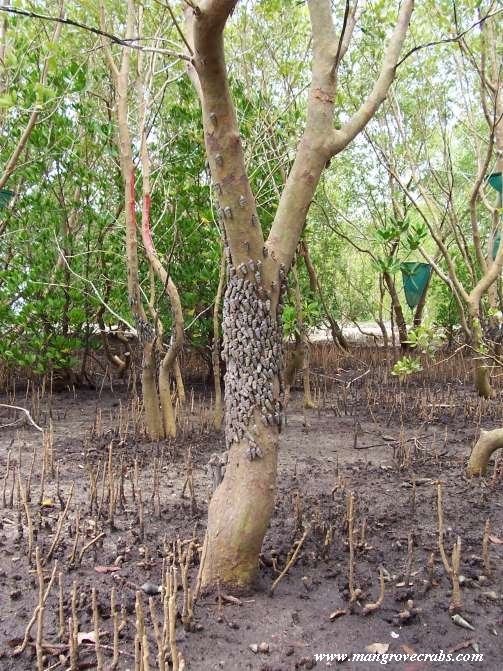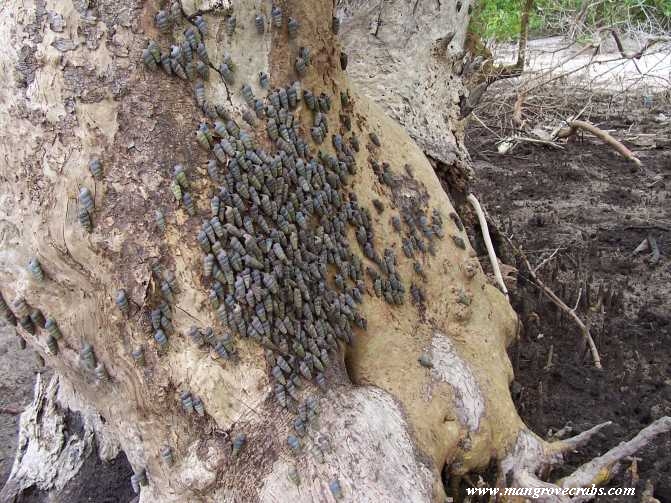|
A field guide to Kenyan
mangroves
|
Cerithidea decollata L.
Family: Potamididae
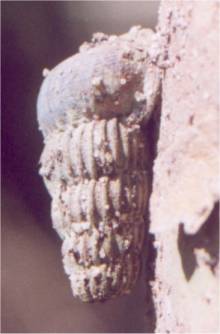
This small mangrove snail can often be seen hanging on mangrove trees at low tide at very high densities (see photos at bottom of page).
|
Zone: Common in the A. marina landward zone (Machiwa and Hallberg, 1995), but also present in the C. tagal / R. mucronata zone (pers. obs.). Habitat: At outgoing tide can be found on mangrove sediments, but will climb trees before the tide returns (Cockcroft and Forbes, 1981b). Food: Organic matter, this species is a deposit feeder (Brown 1971; Marguillier et al. 1997) Ecological notes: Higher density in areas of higher salinity (unpublished data). Distinguishing characteristics: Broken end of shell (but not always evident, see photo below), not pointed like T. palustris. Thick elongate shells up to 3 cm, with five whirls and about 20 axial ribs (Richmond, 1997). Geographical range: West Indian Ocean (Richmond, 1997).
|
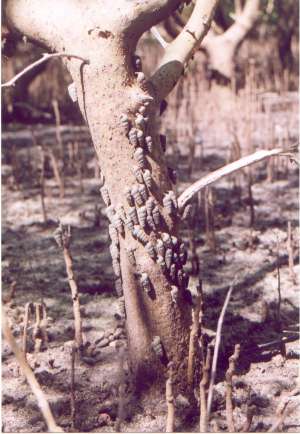 |
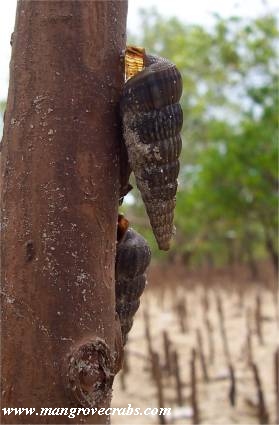
References:
Brown DS (1971) Ecology of Gastropoda in a South African mangrove swamp. Proc malac Soc Lond 39: 263-279
Cockcroft, V.G., Forbes, A.T., 1981a. Growth, mortality, and longevity of Cerithidea decollata (Linnaeus) (Gastropoda, Prosobranchia) from Bayhead mangroves, Durban Bay, South Africa. Veliger 23(4): 300-308.
Cockcroft, V.G., Forbes, A.T., 1981b. Tidal activity rhythms in the mangrove snail Cerithidea decollata (Linn) (Gastropoda, Prosobranchia, Cerithiidae). South African Journal of Zoology. 16(1): 5-9.
Machiwa, J.F. and R.O. Hallberg, 1995. Flora and crabs in a mangrove forest partly distorted by human activities, Zanzibar. Ambio 24(7-8): 492-496.
Marguillier S, van der Velde G, Dehairs F, Hemminger MA, Rajagopal S (1997) Trophic relationships in an interlinked mangrove seagrass ecosystem as traced by d13C and d15N. Mar Ecol Progr Ser 151: 115-121
Richmond, M.D., 1997. A guide to the Seashores of Eastern Africa and the Western Indian Ocean Islands. Sida / Department for Research Cooperation, SAREC. Zanzibar, Tanzania. 448 pp.
